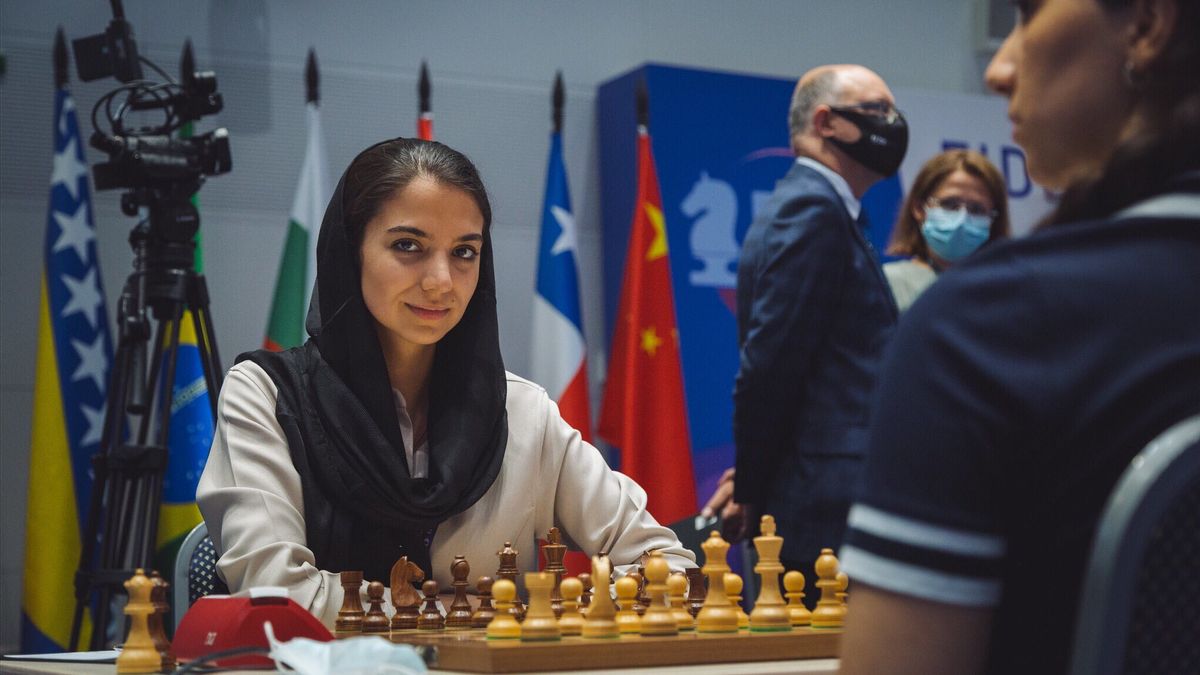JAKARTA - An Iranian chess player arrived in Spain on Tuesday, after receiving what sources close to him said was a warning not to return to Iran, for competing without a hijab in an international tournament in Kazakhstan.
Sarasadat Khademalsharieh or Sara Khadem took part in last week's FIDE World Rapid and Blitz Chess Championships in Almaty without a headscarf that women must wear under Iran's strict dress rules.
Sources, who did not wish to be named for the sensitivity of the matter, said Khadem then received several phone calls in which people warned him not to go home after the tournament, while others said he should return, pledging to "resolution it". problem".
The source also said Kadem's relatives and parents who were in Iran were also threatened, without providing further details.
Iran's foreign ministry did not immediately respond to a request for comment on the case.
Khadem arrived in Spain on Tuesday, the source said. He has not responded to requests for comment from Reuters. The newspapers including Le air and El Pais reported last week that Khadem would not return to Iran and move to Spain.
The phone call caused the committee to decide to provide security in collaboration with the Kazakh police, with four bodyguards stationed outside Khadem's hotel room, the source said.
Khadem is ranked 804th in the world, according to the website of the International Catur Federation. In the championship website on December 25-30, Khadem was listed as a participant in the Rapid and Blitz competitions.
It is known that Iran has been hit by demonstrations against the leadership of the country's clerics since mid-September, when a Kurdish woman named Mahsa Amini (22) died in the custody of a morality police because she was not dressed according to the provisions.
The law imposing the obligation to wear the headscarf has been a hot spot during the riots, with a series of female sportsmen competing abroad performing without a headscarf in public.
Protests marked one of the boldest challenges against Iran's leadership since the 1979 revolution, attracting Iranians from all walks of life.
Women have played an important role, releasing and in some cases burning the headscarf, while protesters took the heart as a form of support from female and male Iranian athletes.
The English, Chinese, Japanese, Arabic, and French versions are automatically generated by the AI. So there may still be inaccuracies in translating, please always see Indonesian as our main language. (system supported by DigitalSiber.id)













